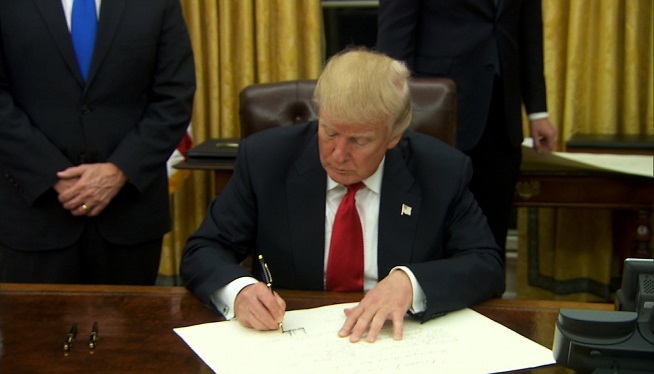
President Trump has announced on Twitter that he would levy new tariffs on industrial metals from Brazil and Argentina in yet another move in his global trade war. The new tariffs come after Trump imposed quotas on steel and aluminum from Brazil and Argentina in early 2018. While the White House trade office has not yet published a formal notice to increase tariffs, the president tweeted that his tariff order was “effective immediately.”
In his tweet, Trump said the new tariffs were needed to counter what he called a “massive devaluation of their currencies” at the expense of American farmers. The Brazilian currency, the real, has fallen about 8 percent this year against the dollar. Argentina’s currency lost 37 percent of its value this year. The Brazilian central bank has cut interest rates three times since August in to jump-start growth while the Argentine central bank has raised its main interest rate to 63 percent to try to stem the decline.
Some experts are saying that the declines are likely due to domestic economic issues in each country, not an attempt to underbid the dollar. Brazil’s economy has barely grown over the past year, while Argentina has an economy that is smaller today than it was four years ago. Neither Brazil nor Argentina were listed as currency manipulators in a report issued by the Treasury Department in May. Neither nation has been labeled a currency manipulator through an independent announcement either.
This is not the first time Trump has boosted tariffs to curb alleged currency manipulation. In August 2018, he temporarily hiked tariffs on steel and aluminum from Turkey as a domestic financial crisis caused the Turkish lira to fall. The decision was reversed in May after Turkey released a jailed American pastor.
